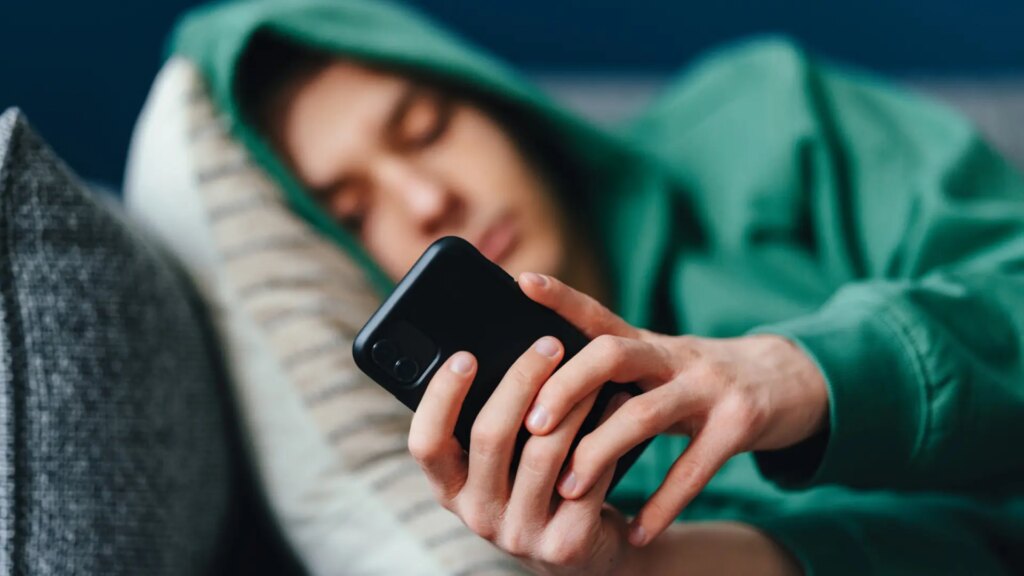Teens see the Internet and social networks as a refuge to turn to when they are upset. More than half of 10- to 17-year-olds have used the world’s online to feel better when they have felt lonely, sad or angry. A trend that worries pediatricians and educational psychologists, who warn that the more they misuse these tools, the more likely they are to suffer from anxiety, stress and depression.
This is the warning of DKV and the NGO Educate is Everything in your I Study on the perception of adolescent mental health and the misuse of technology.. A research for which they have counted with the participation of. 1,475 adolescents, 1,630 parents and 105 teachers.The results, presented on Wednesday at the Official Medical Association of Madrid by educational psychologists Silvia Alava and Rafa Guerrero, agree, to a greater or lesser extent, that young Spaniards spend too much time on their cell phones. The results, presented this Wednesday at the Official College of Physicians of Madrid by educational psychologists Silvia Álava and Rafa Guerrero, show that the greater the perception of the adolescents themselves that they are making incorrect use of technology, the higher the self-perceived rate of emotional disorders.
After asking parents and adolescents about how technology affects their life habits -such as eating, sports or sleep- and the quality of family relationships among peers, the study points out that 30% of parents believe that their children are always or almost always on their cell phones and/or video games, and that this proportion increases ten points, up to 40%, when asking the adolescents themselves. In fact, 45% of the children surveyed recognize that they have problems disconnecting from technology..
In general, the responses of adolescents are much less alarming than that of adults, and teachers are the most likely to warn of misuse of technological devices among their students. and of the effects this is having on their own personal, social and academic development: nearly 90% say that adolescents have great difficulty in disconnecting. So much so that more than one in three adolescents confess that they eat lunch or dinner with their cell phone, a tablet or watching television. “This is a result that worries us,” stressed Rafa Guerrero, who explained that this implies being disconnected from what is being done, in this case eating.
The educational psychologist has also warned of another worrying result: half of the minors surveyed admit that they take their cell phones to their bedrooms when they go to sleep. Something that, as detailed, can affect the development of adolescents, since the devices emit a blue light that affects a part of the brain that regulates the cycles of wakefulness and night. “We also find that those who go to sleep with their cell phones and misuse the device sleep less hours, and sleep worse, which has a domino effect, as it has consequences the next day, at school,” he said.
There will be more information…
